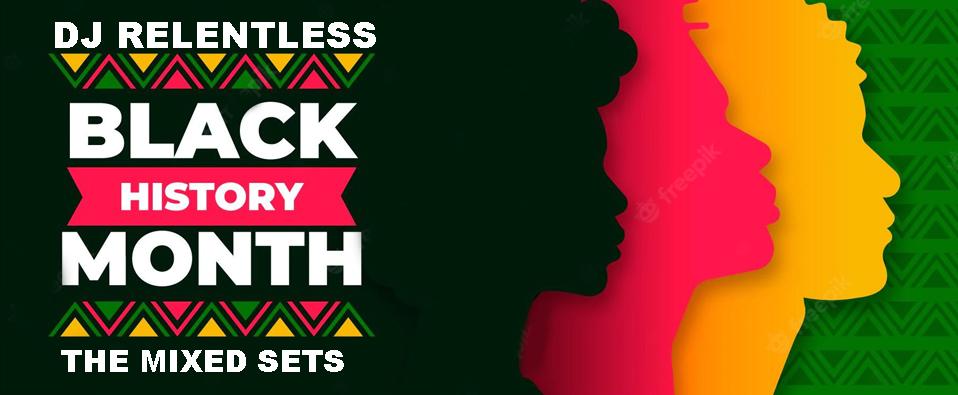
26 minute read
PEOPLE LIVING WITHHIV ARENOT CRIMINALS.

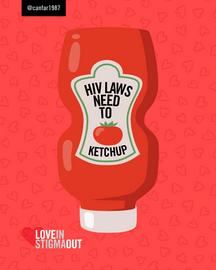
Advertisement

HIVCRIMINALIZATIONISA BARRIERTOCANFAR'SMISSION. WECANNOTENDTHEHIVEPIDEMIC WITHOUTDECRIMINALIZATION.
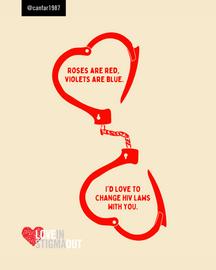

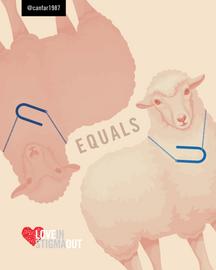
DOWNLOADFREESOCIALMEDIAASSETSATCANFAR.COMTOHELP SHARETHEMESSAGETHATHIVCRIMINALIZATIONMUSTEND. LEARNMOREATCANFAR.COM.

An Outside Look at HIV
Our editor Alphonso King talks with Zoe Faber about HIV+ WOMEN IN MEDIA & FILM

In September I began my residency at the University of Toronto. No one was more surprised than me when I received the email telling me that I had been picked to be a resident for their Queer & Trans Research Lab where I am sharing my experience as a Community Leader. I have a student who has been assigned to be my assistant. Their name is Zoe Faber and I hope that they are getting a good look at how to organize a monthly HIV social/fundraiser and the POZ-TO Awards where we honor ten Canadians for their activism in the fight against HIV/AIDS and stigma.
It has been very interesting showing Zoe what it is that I do because basically the events and using my platform to speak out about what I think is needed to stop stigma has been a learning experience for me. And I decided to sit down and ask Zoe some questions about what they are learning from their time with me and about the subject of what they think of representation of HIV+ women in media and film.
I think it will be interesting to see what a non-binary college student who is not HIV+ thinks about these issues.
AK: Zoe…I am interested in finding out what this experience of working with a 55-yearold out HIV+ gay black man has been like.
ZF: I think what has been the most interesting to me and my experience working with you is the life you’ve lived. I‘ve taken courses on HIV and sexuality studies but you’ve met some of the people I’ve read about. You’ve lived an HIV positive life in every sense of the word. That’s something I can never fully understand, especially from an academic perspective.
AK: What has surprised you about what I do as an activist?
ZF: I think just how much work you truly put in. It’s astounding to me how you put on the MINGLE events, the yearly POZ-TO Awards and a monthly magazine all while working aside from it. You’re a powerhouse!
AK: Thank you, Zoe. Before we started working together, had you given much thought to the HIV+ Community?
ZF: I had taken a course on HIV/AIDS and studied the history of sexuality more generally, so in an academic sense I thought about it a lot. However, from a personal sense it wasn’t something that really crossed my line of sight often, and I think that’s usually by design. It feels safer to typify HIV as an outgroup issue, one relegated primarily to gay men.
AK: Had you and your friends ever talked about HIV and the transmission of the disease?
ZF: Not really. Most of my friends aren’t people who are generally considered at risk and thus don’t really consider it. I did have one friend who at one point got extraordinarily worried about the possibility of transmission, but it was more about a worry of some sort of karmic punishment for having sex. But again, because of HIV’s association with gay men, it's not been something my friends or I have talked about at any sort of length.
AK: When most people do talk about HIV/AIDS it is usually a conversation about gay men. The majority of the media and films are about gay men and their struggles and survival. I gave you an assignment to check out some films. What were the films you watched, and did you find any that were about HIV+ women or had HIV+ female characters?
ZF: I watched RENT, The Normal Heart, Nothing Without Us: The Women Who Will End AIDS, Yesterday, POSE, and Life Support. I consciously sought out films that were said to depict women with HIV, and with the exception of The Normal Heart, they did. The one I found to be the most prescient was Yesterday, which depicts the life and struggles of a South African woman diagnosed with HIV. This is a rarity, however. While the average person with AIDS has become a Black, heterosexual woman living in rural or township Africa, you wouldn’t know this by HIV’s depiction in the media. Most of the popular films about HIV/AIDS typify HIV as a disease affecting metropolitan gay men, ignoring its global ramifications and personifying the ‘face of AIDS’ as a white, middleclass gay man.
AK: How does that make you feel knowing that there aren’t many films about women living with HIV?
ZF: It makes me feel sad. I really believe that the reason that we focus on HIV as a gay man's disease is because of homophobia, because of racism and eurocentrism. It's ridiculous to me that people in this country and all over the world are struggling for their rights and their health and the media by and large uses HIV to glorify gay tragedy.
AK: What did you learn from watching these films?
ZF: I learned the importance of representation! Most people know what they know about HIV because of the media. Because the media now is mainly interested in capitalizing on HIV, if they’re interested at all, it’s unlikely they will ever, in any mainstream way, depict HIV as it is now. We need more modern HIV/AIDS content, and it needs to include HIV+ women.

AK: After watching these films and what do you think should be done to represent more women living with HIV+?
ZF: HIV+ women need to be represented in the media and in research. What was the most eye opening to me was the documentary about women with HIV called Nothing Without Us: The Women Who Will End AIDS. It had an important global lens and highlighted the importance of women in the HIV+ movement. I highly recommend watching it.
Well, thank you for sitting down with me and talking about this very important issue. POZPLANET has been working hard to get more perspectives and articles about and by women living with HIV.
If you’re in Toronto on February 9th, 2023 come for an event of performances and life experiences with Ongina and special guest Jade Elektra at Glad Day Bookshop.
Get your tickets here: bit.ly/3vTPAY7
(As of January 13, 2023, in the Atlanta Journal Constitution.)

‘The bungalow that housed a mix of horror and heroics is gone, but its legacy isn’t.’
The humble, sagging bungalow that sat until recently at the corner of 12th Street and Peachtree Walk in Midtown wasn’t simply among the last, stubborn structures left of a neighborhood Atlanta once knew. It was also the location of services for people living with HIV/AIDS at a time when very few options that might extend lives even existed.
In 1993, I came to Atlanta to serve as director of the Atlanta chapter of the National Association of People with AIDS (NAPWA), later renamed AIDS Survival Project. We were a coalition of people living with a virus that wasn’t yet successfully treatable and which carried so much social stigma that disclosure of your HIV status could threaten your job, your housing and your relationships.
As a gay man living with HIV since 1985, those issues were far more than simply organizational or programmatic. It was a personal leap of faith to even move to Atlanta for the job, thereby leaving my medical and social support network back in California. But, as people living with HIV will tell you, sometimes faith is all you have. That, and I decided that the virus wouldn’t rule my career path or my dreams.
AIDS Survival Project introduced me to countless other Atlantans with similarly resilient attitudes. Volunteers staffed a treatment library with dozens of shelves stuffed to overflowing with the latest medication news – during a pre-internet time when such information wasn’t available at our fingertips. People living with HIV hosted Operation: Survive, a weekend crash course to help the newly diagnosed navigate the physical, medical and emotional aspects of living – and not dying –with HIV.

And that was just upstairs.
The lower floor of the building housed AIDS Treatment Initiatives (ATI), known more commonly among people living with HIV as the Atlanta Buyers Club. Like the film “Dallas Buyers Club” fictionalized, the Atlanta Buyers Club provided medications and alternative therapies to desperate people living with HIV who didn’t have time to wait for glacially paced treatment studies to be conducted.
And through it all, we buttressed ourselves against the ongoing onslaught of mortality that defined the early decades of HIV/AIDS by sticking together and staying informed and helping somebody else.
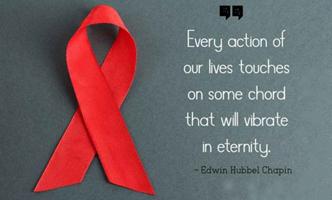
Lives were transformed. Endless comfort was provided. The dilapidated building that used to sit on 12th Street, in short, was a welcoming refuge hosted by the most courageous of Atlantans.
The planned development for the surrounding block will be a glistening celebration of a new Atlanta. Before we know it, it will be bustling with the latest trendy restaurants and elegant shops and condos with city views.
But a generation ago, that block was a heady mixture of horror and heroics. Many of us were there, then. We are still here. And we remember.
(Mark S. King is an activist and writer living in Atlanta. He won the advocacy group GLAAD’s Media Award for “My Fabulous Disease”, his ongoing blog about living with HIV.)
Note: Please support vital journalism by subscribing, digitally or home delivery, to your local paper like the Atlanta Journal Constitution.
Sometimes I despair at the treatment of aging issues within the HIV community. We just don’t seem to address what’s important. That’s because aging discussions are usually amongst younger members of our community
Here’s an example - I see my own memory starting to degenerate. Names of people, places and things, even those I know well. too often become a struggle to recall. I’m frequently searching for the right word. But is this part of normal aging or is it an HIV-related decline in cognitive function? There is quite a bit of research on the latter but search google on “HIV and memory loss” and there’s very little that appears
We treat memory loss as if it’s inevitable. We don’t really study it in the context of HIV. But memory loss has consequences. It’s not just annoying for those of us who suffer from it, or dangerous if it means forgetting to take medication. It can also mean erosion of our history, a valuable resource that need to be preserved. We all have stories; collectively they represent the history of the HIV epidemic. We can’t lose that. So today I want to do my part. Today I want to tell my story.
I’ve been living with HIV for thirty years; longer if you include whatever pre=diagnosis years I lived in ignorance of the fact that I had it. But this story begins in 1993.
In September 1993 I was working in senior management at the Head Office of one of the major Canadian Banks. I had a secretary, a nice office on the 50th floor at King and Bay – and a job in risk management I hated. It was by any standards a conservative environment. Conveniently, my family doctor had her practice in an office building right next door. When I had gone to her a few weeks previously with a swelling under my left arm I worried it was cancerous. She ordered a battery of blood tests and when the results came in, without telling me what they revealed, she referred me to a hematologist.
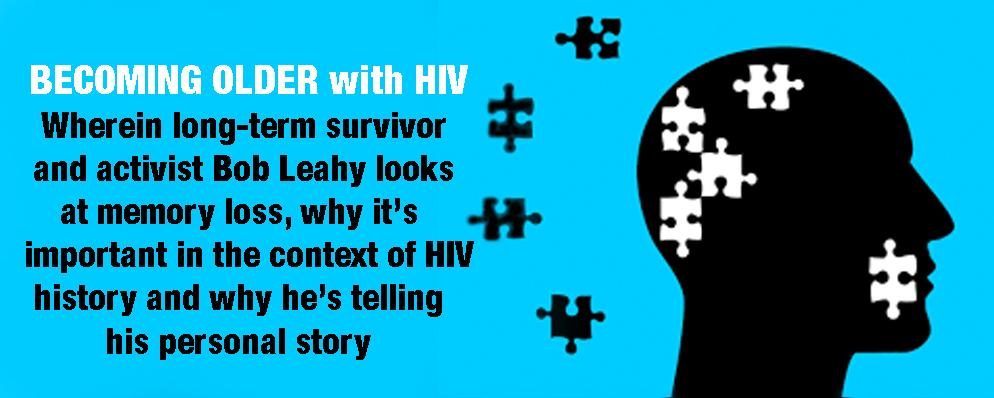
The visit with the hematologist was kind of a non-event. He examined me but offered no diagnosis, in fact very little other than a referral back to my family doctor. It felt like I was being bounced. In any event, back at my family doctor, the last patient of her day, I heard words I wasn’t expecting, Normally poised and professional, she seemed uncomfortable with telling me, oh so gently, “you are HIV-positive”.
Here's where my memory fails me a little. I do remember handling it well. I also remember feeling sympathy for her discomfort rather than mine. I remember she gave me a pamphlet. I remember there was talk about referrals to the HIV Clinic at St Mike’s Hospital. Maybe I should contact the AIDS Committee of Toronto, she said. In retrospect it was nothing like post- counselling, but this was 1993 and I think I was her “first.” I left in a bit of a daze but emotionally intact.
On the streetcar home, though, my mind was racing. The delayed reaction to the life sentence I’d just been handed struck. Two trains of thoughts I had on that streetcar still haunt me. The first was that I was now entirely different to everyone on that crowded streetcar. The second was that I would never, ever be happy again, would never laugh again, would never have a mind at peace.
I went home and told my partner. I haven’t a clue how that went – my memory has holes in it = but I knew I was finally getting emotional and desperately needed support – and then the doorbell rang and his relatives arrived. It was the ultimate in bad timing so I raced upstairs and stayed there until they left.
The details of how that first week went are foggy, I know I returned to work the next Monday. The challenge of pretending nothing had happened weighed heavily, though. That I had a busy and demanding job probably helped at first. I could get lost in it. But there were things I had to do after hours. First among them was a trip to the lawyers to make our will; secondly to the AIDS Committee of Toronto (ACT) to enquire about treatment options, as my doctor hadn’t covered that well. There were none, of course or no effective ones. But I liked the look of the organization. (I later retuned as a volunteer, the beginning of a long career in HIV activism.)
Six miserable months at the bank went by, feeling less and less able, physically and mentally, to handle the heavy demands of my job. I had started attending the HIV clinic at St Mikes. I felt different in my suit and tie to those who I sat next to in the waiting room. Meanwhile my CD4 numbers were trending downwards; initially 240, they had dropped below the 200 mark - and with that an AIDS diagnosis. I was not doing well and it was very clear I had reached a cross roads. I had to tell my employer. But how?
I reached out to a colleague I knew well who had ended up working in the bank’s Human Resources Department. She told me what to do: go to see an in-house doctor in the bank’s Health Centre; yes, they maintained one in the building. So, with huge trepidation, I went.
That meeting, looking back, represented one of several turning points in my life. First, they had dealt with this before, so they had a protocol, a good one. We talked about disability, both short and long term; we talked about supports I might need, they thought my fragile mental state suggested a psychiatric assessment was in order (I was clearly suffering from depression). We talked too about workplace disclosure; I was at a loss how to tell my boss, my secretary or my colleagues. They gave me several alternatives. They would either support me in that disclosure or they could do it for me. I chose the latter of course. In fact, I never went back to my desk again. That was my last day of paid employment.
There followed a period of enlightenment as I got my house – and mind - in order. I’ll write about that next time and how Tom Hanks played a key role in all that.
Working on a new campaign to get more information about the science of U=U out to all communities and your voice and experiences could help get that message out there. So, click here: https://docs.google.com/forms/d/e/1FAIpQLSftQVq2PU6GMuSAeRP ozuwYXCQJRJP259Ymxl7ahtQ8rP2p1g/viewform and answer a few question and you could be selected to be part of our studies.
NOW’S YOUR CHANCE TO GIVE BACK TO THE COMMUNITY!

So, one day I was scrolling through Twitter and saw this fabulous post that read "Can you date me even if I am HIV positive?" The author of the post was a lovely young lady that I knew I had to get to know. I am so excited to introduce our readers to Gloria "The HIV Beauty Queen"!
JE: It is so nice to finally get the opportunity to talk with you. How are you today?
G: Pleasure is mine, Jade. Am well! Thanks
JE: So, I think we should start with a little background information. Where are you from and how old are you?
G: My name is Nawanyaga Gloria, I am a young person born and living with HIV from Uganda, Africa. I am 26 years of age. I am a Human Rights Lawyer, HIV Advocate at the global Level, founder of the Y+ Music Band (a band of vibrant beautiful and handsome young people both infected and affected with HIV) and we use our talents to create a positive impact through edutainment. I am also the Founder of the GILO Young Positives Foundation, a charity organization that empowers, equips and educates young people both infected and affected with HIV to improve on their livelihoods and make better and informed choices/decisions in their lives.
JE: Now, we ask this of everyone who is featured in our UP CLOSE & PERSONAL column. How long have you been HIV+ and what was that experience like getting your diagnosis?
G: I was born with HIV so have been with the virus for the past 26years since birth. My mother disclosed to me about my HIV status when l was 11 years after me asking her why I am taking medicine and why l was always going with her for medical checkups. At first, she was afraid to tell me but later on she realized that l am growing up and soon or later l will get to know about my HIV status So, she took me out to a nice place, and she asked me what do you know about HIV? I told her what l knew about HIV is everyone who has HIV is going to die! Because at school we were taught that HIV kills So, she asked me what will you do if you ever find out that you have HIV? I didn't answer because I connected the dots and thought to myself that maybe I have HIV. At that moment, l hated myself because l thought l am going to die, I even tried to commit suicide twice, hated my parents and l kept on judging them for giving me their virus, but grateful to God that I am over it now and l also forgave my mom. Am at peace with myself and have learned self-acceptance, self-love and positive living.
JE: That must have been really tough. I found out that I was positive when I was 22. I'm curious what made you decide to disclose so publicly on Twitter?
G: Due to the stigma and discrimination l faced because of my HIV status at University, l was forced to publicly disclose my HIV status. When l had just joined university, l got a roommate, but because she was from a rich family and by that time my father was so ill due to AIDS, we literally didn't have money at home because my father was the breadwinner. So, l could not afford even to buy food My roommate (since she had money) could buy food and other utilities had a boyfriend who would come to our hostel once in a while. So, since she was the one providing, l think she felt a sense of entitlement and told me that the boyfriend was going to move in l could not say no since she was the one providing The boyfriend moved in, few weeks later he picks an interest in me and tells me that he loves me l asked him "Are you stupid?" because his girlfriend was my roommate, class mate, course mate and for sure his idea was a stupid and crazy one, so l said “NO” me to him And l think he turned his shame into anger, he went through my suit case since he had access to our room, checked for my medical form and medicines, and he found out that l was HIV positive But even before he approached me, he had noticed me taking my meds and always asked me why I was taking drugs. l would always lie to him that it was a stomach-ache or a headache After finding out that l am HIV positive, he went to his girlfriend and told her that l was seducing him to infect him with HIV. Everyone hated me and started stigmatizing and discriminating me. I tried to sit this girl down and explain everything to her, but she couldn't listen.
So, I ran away from the hostel. Il decided to talk to myself and ask “Gloria, is your HIV status going to change?...NO,” I asked myself “How long will you keep on running away from reality? This is your HIV status and it’s not gonna change unless God does a miracle (of which he hasn't). People need to love and accept you for who you are! I told myself “Hey Gloria… you are a bold and brave person Bold and brave people don't run away from problems but rather face their problems and find solutions. I decided to come back to school and when they saw me they had to leave the room because they said they can’t live with someone who is HIV positive. I remained in the room with no friends, but l told myself “Gloria, you went to school to study, focus on your studies and ignore all those stigmatizing you. I focused to my studies and l was the best in that semester with a 4.75 CGPA. But deep in my heart l wanted to prove these people wrong, l wanted to show that someone who is HIV positive can be a responsible person, can create positive impact in society and can even be better than them.
So, one day l went on the internet and came across this pageant called Y+ Beauty pageant organized my Uganda Network of Young People Living with HIV that empowers and advocates young living with HIV to be change makers We advocate against stigma and discrimination, rights YPLHIV, meaningful engagement and inclusion of YPLHIV in policy making, safe environments for PLHIV, we advocate against social injustices in public health. l was like, why don't l give it a try, l went for the auditions, l went through, went for the bootcamp in Fort Portal in Western Uganda, came back to Kampala (the capital city of Uganda) and that year 2017/18 I was crowned MISS Y+! My advocacy journey and me living publicly with HIV started from there. I also went in for the National Beauty pageant in Uganda "Miss Uganda" and l won two titles, Miss Uganda Rising Woman and Miss Purpose. And that’s why l call myself “The HIV Beauty Queen” on twitter ha-ha
JE: Have you experienced problems online because of the stigma of living with HIV?
G: There are so many problems that come along with living publicly with HIV and the first ones were stigma and discrimination. l faced a lot of online stigma and l remember there was someone who came in my inbox and asked me sarcastically "How may men did you sleep with to get HIV?" Even when l had said that l was born with the virus, most people still think that HIV is a result of sexual immorality like prostitution, sex work, etc Yet some of us we were just born with the virus and had nothing to do with getting the virus but found ourselves victims. And even if someone was not born with the virus, having HIV doesn't make one more less a human We are also human beings, and we are entitled to our Human Rights And there are so many HIV transmission methods apart from sexual intercourse.
I also faced a problem of family denial after them seeing my posts on social media, l remember one of my relatives called my mother and told her that l should stop my social media advocacy because l am a shaming them.
When l competed for Miss Uganda in 2019, many people online started saying that l opened up about my status so that l can get public sympathy, that l didn't deserve the crown and that really caused me to go into a depression My mental health was in jeopardy. Other than those problems, there are so many people who I have helped to overcome stigma, adhere well to their medication, and inspired self-love and living positively. So, I am not focusing on the negative part of it but more so the positive impact that has been created in my society.
JE: Do you work with any organizations or campaigns to fight HIV stigma?
G: YES! I have my organization called GILO young positives foundation, a charity organization that empowers, educates and equips young people both infected and affected with HIV to improve on their livelihoods. I promote capacity building skills among young people by empowering them with hands-on skills to help them sustain themselves and improve on their livelihoods. I also promote quality education among children (orphans) who lost their parents due to AIDs and we sponsor them, provide scholastic materials and basic needs. I empower young people with sexual reproductive health and rights information so that they can make informed decisions when it comes to their sexual lives. I also provide mentorship skills to these young people so that they can also be change makers. I am still looking for partners, sponsors and anyone who can come on board to support, contribute or donate to young people living with HIV to get the basic life skills to sustain themselves. We are looking for anyone who can help our children in our "Keep Young Positives In School" project. Any help would be greatly appreciated. All our social media platforms are actives and our website as well.
JE: Before I let you go, what advice would you give to a young woman who is newly diagnosed?
G: My advise to young women who are newly diagnosed is that 'ITS NEVER THE END OF LIFE IF YOU HAVE HIV" HIV doesn't define you , its just a tiny virus in your blood that you can suppress every day by taking your medication. You are greater than HIV and HIV should never limit you in achieving all your dreams, goals and aspirations. there are 3 things that can help young people to overcome stigma
1. Self-acceptance
2. Self-love
3. Choosing to live a positive life.
JE: Well, thank you so much for talking with me today. I know that your story will inspire others and help many women who are living with HIV. We need more people out about their HIV status in order to help end the stigma of living with this disease.
Cover and Photos taken from Twitter (PDM Photography) and personal photos. Be sure to check out The Y plus Music Band: https://twitter.com/yplusmusicband?s=21&t=cyoogjSMk8mq6vg_prG9ig

It's the Chinese Year of the Rabbit and that means a year of fortune and personality. And 2023 feels like there's a lot of fortunes and personalities that will be determined this year. We have twenty tracks to take on. We have five LGBT artists in the mix this month and seven remixes or reboots of some classic songs. Also...this month's featured remixer is Sid Miller (better known as Licious The Daddy or LTD).
We’ve got a lot to cover and talk about…so let’s get started.
To open our mix, I chose a live performance by Billy Porter. When I worked with Billy last summer on an episode of the new FOX TV show “Accused”, he actually sat and had lunch with me. We talked about our journeys and our music. He told me that he was working with some new producers and was moving towards some new sounds. Well, this song, “Stranger Things” is completely different from what I was expecting for his new album. He is still singing messages about unity and us taking back our power and community, but it’s got a Rock production. His gospel vocals cut through the guitars.
Our second selection is the Funkymix of “Star Walkin’” by Lil Nas X. I have to confess that I completely avoided this song because I did not like the speed of it. I don’t really play music around 142 BPMs. So, the beauty of using DJ software is that you can play almost any track at any speed with it sounding like it’s too slow or too fast. I decided to slow this one down to 132

BPMs. It definitely made the track more appealing to my ear. And because I do try to support as many LGBT artists as I can, this was a great option. Do I love the song? Not really. But I will play at this speed if it is requested.
However, “Serotonin Moonbeams” by The Blessed Madonna is one of my new favourites. It’s a little fast for a House track but it definitely has that 90s feel to it. I played it at 131 BPMs but in the future I will be slowing it down to 128. There’s something about the opening vocal that reminds me of Suzanne Vega’s “Tom’s Diner”.
Our fourth selection is the Matt Moss Club Mix of “All I Wanna Do” by Sheryl Crow. I don’t always love reboots or remixes of Pop songs years later but I kinda like this one. It’s definitely better than that cover by Susie Vanner a couple of years ago.

If our fifth track sounds very familiar…it should. “Pump It Up” by 3 Are Legend, Tujamo, Jaxx & Vega featuring Black & White Brothers. This reboot of this 90s party anthem has the same catchy production and even a sample of the Mixmasters’ “In The Mix”. What’s not to like?
With our next track we are just in Banga Country! If I were on a floor and “Trueno” by Sak Noel came on I’d have to dance a little harder. There’s nothing like a good Club track to keep an energy going. And I tend to always enjoy any tracks that have Sak’s name associated with them.
Track seven is a great reboot of “Calabria” by DMNDS ft Fallen Roses, Lujavo & Lunis. Now, don’t get me wrong…I still the 2007 version by Enur featuring Natasja but this is a pretty hot update. Like the original, I have no idea what the lyrics are saying.
And speaking of not understanding lyrics, our eighth selection is just called “Tra Tra” by HUGEL, BLOND:ISH & Nfasis. Don’t really understand what they are saying either but the track is hot!
Last month I used a Quavo & TakeOff to talk about TakeOff’s death. This month I found the LLP Remix of their song “Hotel Lobby”.If Migos had more remixes like this one I probably would have played more of their music. Most of their tracks are at that annoying Trap speed which just does not lend itself to a Club setting. More Hip Hop artists should lean into the merging into House like Megan Thee Stallion and Drake

Last month I congratulated Lil Wayne for his single “Lollipop” getting diamond certified. So, now there is an interest in his other early hits. So, I wasn’t surprised when I found the ACRAZE Remix of “A Milli” in my videopool. It’s a hot little mix…. definitely going into my sets!
I was looking through my feed on Facebook and my friend Corey Wesley had posted this clip from Instagram of this one-man band doing a cover of N.E.R.D.’s “Lapdance”. I was blown away by his energy and flow. The wild-man dashing between keyboards, a guitar and a drum set was someone called YOUNGR (a British singer, songwriter, producer and musician whose career started back in 2012 with his brother in a duo called Picture Book). I liked it so much that I downloaded it immediately and began playing it in my sets.
Our twelfth selection is “Cure My Desire” by Hannah Wants featuring Clementine Douglas. It’s an okay track. I don’t love it and I don’t hate it. It will be a good filler in a mix.
In the opening paragraph I mentioned Sid Miller (also known as Licious The Daddy or LTD). I’m in a special online video group where VJs and Remixers exchange projects and Sid is one of the contributors. I like his work because he will tackle ballads and Hip Hop songs and transform them into Club and House remixes. So, let’s look at three of his recent remixes or tracks…
So, I’m sure by now you have heard the news that Madonna is going on her Celebration Tour after releasing her Finally Enough Love Box Set. And I know many are going to say that I am being ageist but at this point I am embarrassed for her. Yes, she has had a career of pushing the envelope of social norms but I just wish she would learn to age gracefully. The ridiculous butt implants and the over-sized face from fillers just read as desperate for attention. And I have been a Madonna fan since I first heard “Physical Attraction”. My birthday is the day after hers. I’ve seen her live four times. I love her career. I love what she has represented over all these decades. But there comes a time to grow as an artist. Don’t repeat yourself…especially your younger self. I’ve grown as a person…why shouldn’t she?
But when I saw that there was a Licious The Daddy Remix (I always think of thing of the 70s R&B group Love Devotion & Tenderness when I say LTD…so I would rather say Licious The Daddy instead) of “Bad Girl” I thought this would be the perfect track for this mix. I love that Sid took this Pop Ballad and gave it a complete makeover. Not sure if true Madonna fans will love it but a collector definitely will. And Sid even gave us a video edit to go with it. Sid has also taken on “Take A Bow”, “Everybody” and “Hung Up On Tokischa”. I honestly think that she should work with this guy on some new tracks or used his remixes for her box set.

Everyone who knows me knows that I don’t watch or support RuPaul’s Drag Race. So, my knowledge of the queens from the show is whatever hits Pop Culture and sticks in the news or YouTube. So, I assumed Willow Pill came from the show when I got the LTD Remix of “I Hate People”. I am guessing this was a song done on the show, but Sid’s remix is great and is a fixture on my VIDEODROME show on Twitch.
Our fifteenth track is actually an original production by Sid. Not sure why he didn’t use his alias as the artist name but “Read That Bitch” by LANDLORD is a classic Bitch track taken from Dominique Jackson’s dialogue on POSE. And having a video to match in my programming has made it a favourite in my sets and at my gigs.
Up next is the Charles Bora Remix of “Calm Down” by Rema & Selena Gomez I had never heard of Rema but apparently, he is a 22 year old Nigerian recording artist who has several Afrobeat hits. I guess he wants a U.S. crossover since he has partnered with Miss Gomez on this track. And this remix is not half bad. I think I prefer the original for listening though.
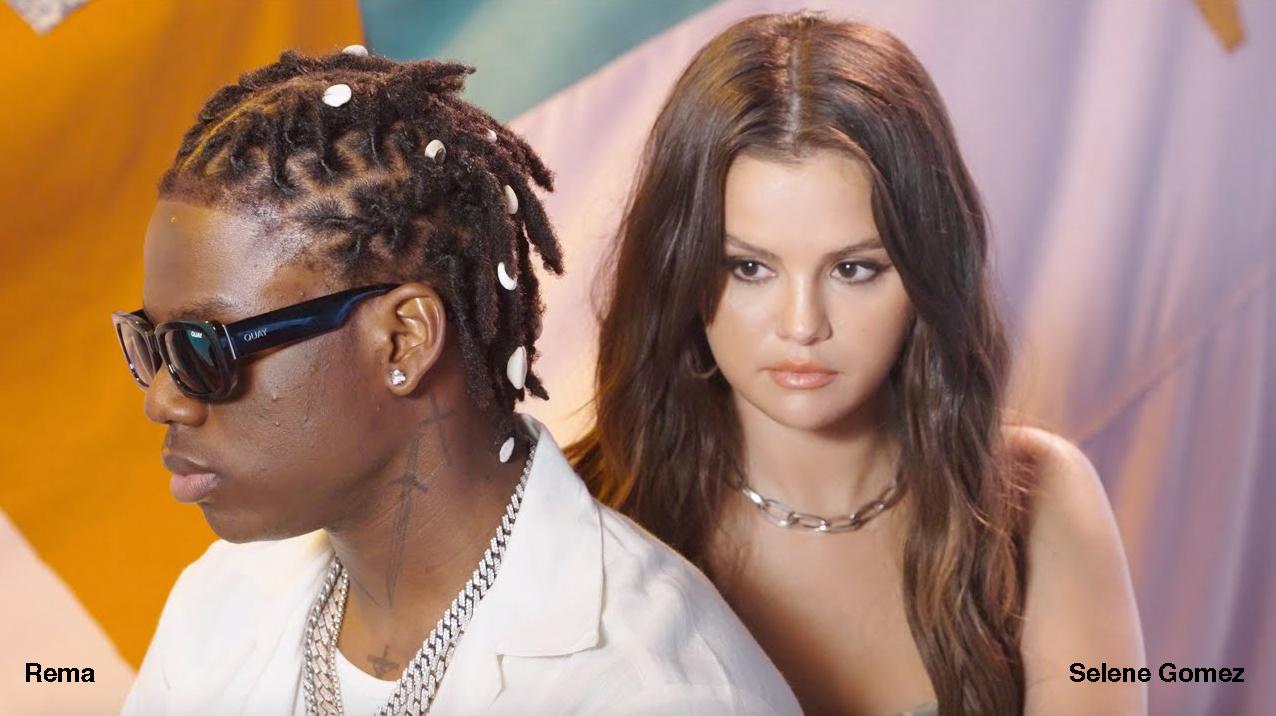
“Flowers” by Miley Cyrus is our seventeenth track. I watched Miley and Dolly Parton’s New Year’s Eve special instead of Anderson Cooper and Andy Cohen…(can’t stand them! They are what’s wrong with our LGBT Community…don’t get me started!) and rather enjoyed Miley’s hosting and singing. There’s actually quite a few remixes out there but the FUri DRUMS Remix worked best in this set.
In this environment anything is possible online. And old releases can be new again thanks to Tik Tok. So, “Bloody Mary” by Lady GaGa is back on the Billboard charts after twelve years…all due to a visual paring the school dance scene from the Netflix show WEDNESDAY. There’s quite a few new remixes of the song but I chose the Dave Delly Body Funk Mix for this set. https://www.mixcloud.com/djrelentlessny/black-history-month-the-dj-relentless-music-library-1 https://www.mixcloud.com/djrelentlessny/black-history-month-the-dj-relentless-music-library-2 https://www.mixcloud.com/djrelentlessny/black-history-month-the-dj-relentless-music-library-3

One of the things that I try really hard to impress upon new DJs is the power of being open to all types of music. If you listen close enough you can hear influences and it might just influence you in your mixing or programming.
Our nineteenth selection is “The Git Up” by Blanco Brown. Visually seeing Mr. Brown, I immediately would have assumed he was a R&B / Hip Hop artist but he’s got this great Country hit. And he video is fun too. You can hear the Hip Hop influence in the song but it definitely has that Country twang.
Shania Twain weighs in with her new single “Giddy Up”. It works very well with Blanco’s track and seems to be made for mixing with it. My only problem is that she’s not really in the video. I think that’s a big mistake. As proven with Beyonce’s Renaissance album, music videos featuring the actual artist will sell more records and deepen your well of fans. Let’s hope Shania does not go down this path.
Our twenty-first selection is “We Caa Done” (still not sure how this is pronounced…and I’ve watched the video several times) by Popcaan featuring Drake. It’s a Reggae song and I am assuming Drake is featured to get the Pop crossover. It’s okay but seems a little low key in production to be a dance hit. It’s radio friendly but not a banga.
And to close out the mix I found an amazing Salsa version of Donna Summer’s classic Disco hit “Last Dance” as performed by Lucy Grau. It’s perfect to close out an evening.

